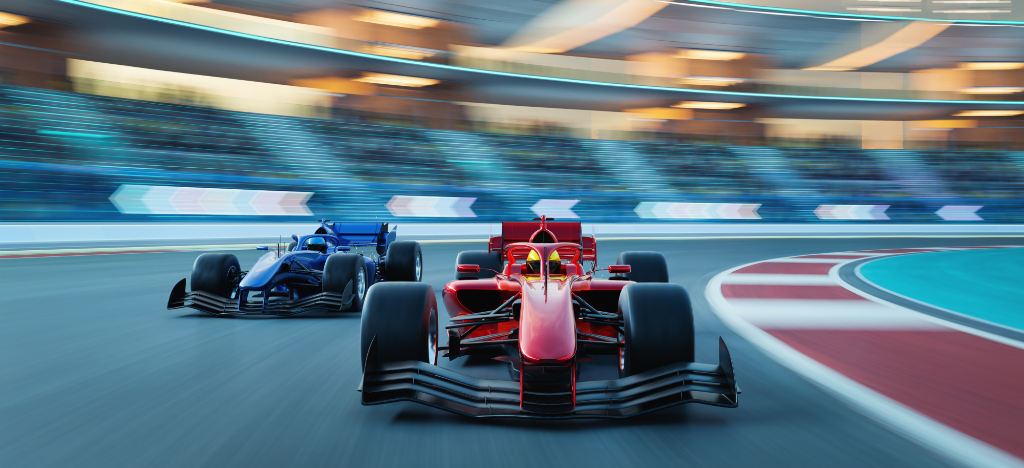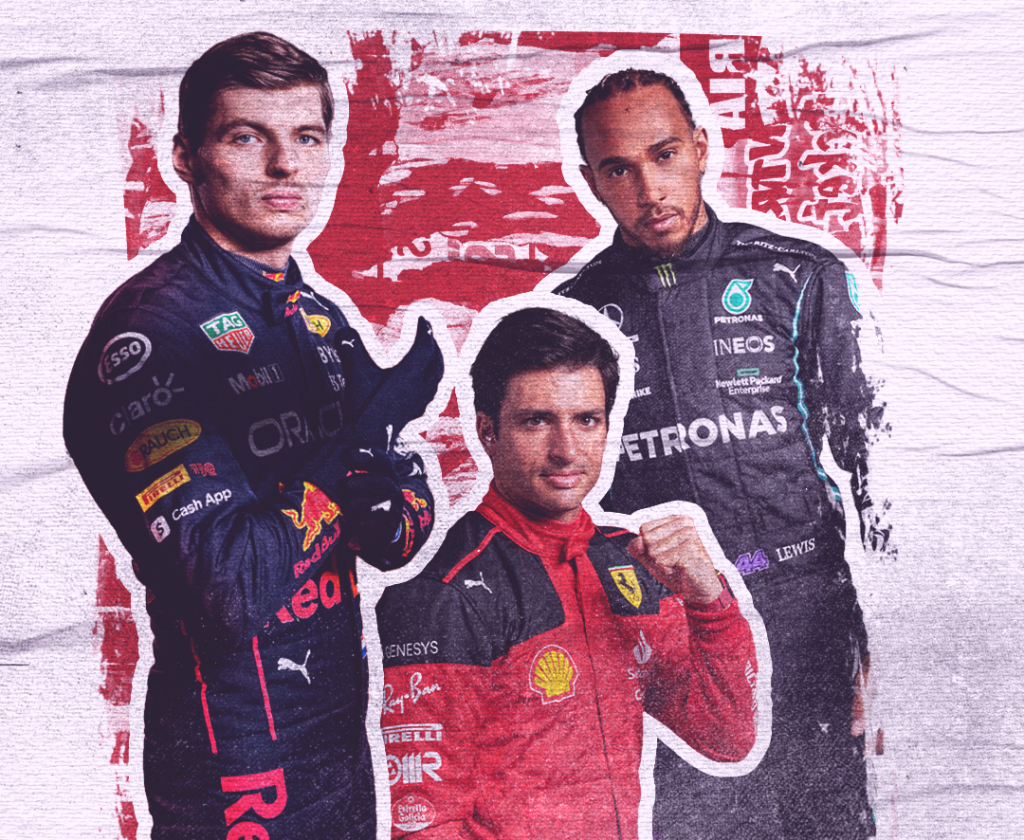We have embarked on a thrilling journey to explore the world of F1 betting, driven by our passion for the sport and its captivating allure for players. In this review, we begin by delving into the rich history of F1 racing, tracing its origins and evolution. By understanding the sport’s historical context, we aim to provide a solid foundation for a deeper appreciation of F1 betting. Additionally, we delve into key characteristics of F1 racing that are crucial for informed betting decisions. Join us as we unravel the intricacies of this exhilarating sport and uncover valuable insights to enhance your F1 betting experience.

F1 HISTORY
F1 racing boasts a rich and storied history that spans over seven decades, captivating fans with its blend of speed, skill, and competition. The sport’s roots can be traced back to the early 1950s when the inaugural Formula One World Championship was held in 1950. Since then, F1 has evolved into the pinnacle of motorsport, attracting the most talented drivers, teams, and engineers from around the globe.
Throughout its history, F1 has witnessed the rise of legendary drivers who have left an indelible mark on the sport. Icons like Juan Manuel Fangio, Niki Lauda, Alain Prost, and Ayrton Senna have become synonymous with F1 excellence, showcasing unparalleled driving skills and fierce rivalries that have captivated audiences.
Technological advancements have also shaped the sport of F1, propelling it to new heights. From the introduction of aerodynamics to the development of hybrid power units, each era has brought new innovations that push the performance of the cars to unprecedented levels. F1 has become a hotbed of technological advancement, often serving as a testing ground for cutting-edge developments that eventually make their way into everyday road cars.
The allure of F1 racing extends beyond the track, with Grand Prix events held around the world attracting millions of spectators. The Monaco Grand Prix, known for its glamour, and the Italian Grand Prix at Monza, steeped in passion, are just two examples of races that have their unique atmosphere and traditions. The excitement and energy that fill the air during a Grand Prix weekend are truly unmatched, making it an unforgettable experience for both fans and newcomers.
F1’s impact on popular culture cannot be overlooked. The sport has become a global phenomenon, captivating audiences through extensive media coverage, documentaries, and video games. Its influence extends beyond the racetrack, shaping fashion, technology, and lifestyle trends.
F1 BETTING POSSIBILITIES
As F1 racing continues to gain popularity, the world of F1 betting has expanded, offering fans an opportunity to enhance their engagement with the sport. F1 betting presents a wide range of possibilities, allowing enthusiasts to test their knowledge and predictions while adding an extra layer of excitement to each race. Let’s explore some of the betting options available in the world of F1.
Race Winner:
One of the most common F1 betting options is predicting the race winner. Fans can place bets on which driver will cross the finish line first. With each race featuring a competitive field of skilled drivers, analyzing their past performances, current form, and track conditions can provide valuable insights for making informed predictions.
Podium Finish:
In addition to predicting the race winner, F1 betting also offers the opportunity to bet on drivers who will secure a podium finish. This bet involves selecting drivers who will finish in the top three positions. It adds an extra layer of excitement as fans can root for their chosen drivers throughout the race, hoping to see them climb the podium.
Fastest Lap:
Another popular F1 betting option is wagering on the driver who will set the fastest lap during the race. This bet requires considering factors such as driver skill, car performance, and track conditions. A combination of speed, strategy, and consistency is vital in securing the fastest lap, making it an intriguing bet for fans looking for a specific performance-focused wager.
Head-to-Head Matchups:
F1 betting also extends to head-to-head matchups, where fans can bet on which driver among two or more competitors will finish ahead of the others. These matchups can be based on various criteria, such as the drivers representing different teams or specific rivalries within the sport. Analyzing driver form, historical performance, and track characteristics can aid in making well-informed decisions.
Safety Car Appearances:
F1 races occasionally involve safety car appearances due to accidents or adverse weather conditions. Some betting platforms offer the option to predict the number of safety car appearances during a race. This unique betting opportunity adds an element of unpredictability and excitement, as fans try to anticipate the likelihood of incidents affecting the race.
It is important to approach F1 betting responsibly and consider it as a form of entertainment. Staying informed about the sport, monitoring driver and team performance, and understanding race conditions can greatly enhance the betting experience. Additionally, setting limits and betting within one’s means ensures a responsible and enjoyable involvement in F1 betting.

BEST CASINOS For F1 Betting!
- jackbit
In these casinos, you can receive the best experiences by betting on F1. With a wide range of F1 betting options, competitive odds, and user-friendly platforms, these casinos provide an immersive and dynamic betting experience. They also offer valuable insights, expert analysis, and dedicated customer support to enhance your betting decisions. Additionally, enjoy a world-class gambling experience with diverse casino games. Unleash your betting prowess, feel the exhilaration of every lap, and be part of the action with these exceptional casinos.
What are the rules of F1?
Understanding the rules of Formula 1 (F1) is paramount for anyone looking to engage in F1 betting. Familiarity with the regulations not only enhances the betting experience but also enables informed predictions and strategic wagers. In this section, we will explore the significance of comprehending F1 rules and how they intertwine with the exciting world of F1 betting.
The Drivers, Teams, and Points System in F1 Racing
In F1 racing, a season consists of a dynamic roster of drivers representing various teams. Each team fields two drivers for each race, totaling a grid of typically 20 drivers. The drivers compete not only for individual glory but also to contribute points to their respective teams in both the Individual Championship and the Constructor’s Championship.
Points are awarded to drivers based on their finishing positions in each race. The current points distribution system, as of the 2021 season, is as follows:
1st place: 25 points
2nd place: 18 points
3rd place: 15 points
4th place: 12 points
5th place: 10 points
6th place: 8 points
7th place: 6 points
8th place: 4 points
9th place: 2 points
10th place: 1 point
These points contribute not only to the drivers’ standings in the Individual Championship but also to the Constructors’ Championship, which combines the points earned by both drivers of a team. This dual championship format adds an additional layer of strategy and competitiveness to the f1 betting.

The Significance of Qualifying Races and Starting Positions
Before each Grand Prix (GP) race, drivers participate in qualifying races to determine their starting positions. Qualifying races consist of multiple sessions, with the fastest lap times determining the starting grid. The driver who sets the fastest time earns pole position and starts the race from the front of the grid. This coveted starting position provides a strategic advantage, making it a crucial factor to consider when placing F1 bets.
Tire Types and Strategies in F1 Racing
F1 racing employs three primary tire compounds: the Hard (H) tire, the Medium (M) tire, and the Soft (S) tire. Each compound offers distinct characteristics and benefits, allowing teams to adapt their strategies based on track conditions, temperature, and race distance.
The Hard (H) tire, as the name suggests, is the most durable compound. It provides excellent longevity, allowing drivers to maintain consistent performance over extended periods. The Hard tire is commonly used in races with high levels of tire wear, offering stability and endurance.
The Medium (M) tire strikes a balance between performance and durability. It offers good grip and responsiveness while providing a reasonable lifespan. The Medium tire is a versatile option often preferred during races with moderate track temperatures and less abrasive surfaces.
The Soft (S) tire is the fastest and most grippy compound. It offers maximum performance but with reduced longevity. The Soft tire excels in races where drivers aim for quick lap times and aggressive overtaking maneuvers. It is commonly used in qualifying sessions and during the early stages of races when grip and speed are crucial.
Tires as a part of strategy in F1 Racing
Teams strategize their tire choices based on factors such as track temperature, surface conditions, expected degradation rates, and pit stop plans. The ability to adapt tire strategies throughout the race can provide a competitive advantage, as drivers can maximize performance and minimize time lost during pit stops.
Understanding the benefits and characteristics of each tire compound is essential for F1 betting enthusiasts. Analyzing track conditions, weather forecasts, and historical tire performance can help in predicting the teams’ choices and the impact those choices might have on race outcomes.
By considering the drivers, teams, and points system in F1 racing, as well as understanding the intricacies of tire types and strategies, F1 betting enthusiasts can make more informed predictions and enhance their overall F1 betting experience.
Pit Stops: Crucial Moments in F1 Races
Pit stops are planned breaks during a race when drivers enter the pit lane to change tires, refuel, and make necessary adjustments to their cars. This stops are critical in maintaining optimal performance and adapting to changing race conditions. Teams strategize the timing and frequency of pit stops based on factors such as tire wear, fuel consumption, and track conditions. Monitoring pit stop strategies becomes crucial for F1 betting lovers, as well-executed pit stops can give drivers a competitive edge and potentially impact race results.
Penalties in F1 Racing: Upholding Fair Play
F1 regulations include a comprehensive penalty system to ensure fair competition and adherence to rules. Penalties can be imposed for various infractions, such as speeding in the pit lane, causing avoidable collisions, or exceeding track limits. Common penalties include time penalties, grid position penalties, or even disqualification from a race. Recognizing penalties’ impact on race outcomes is crucial for F1 bettors, as they sway standings and results significantly.
Flags and Their Significance in F1 Racing
Flags play a crucial role in communicating important information to drivers during races. The yellow flag indicates caution, informing drivers to reduce speed and be prepared to encounter hazards on the track. The red flag signals the suspension of a race due to unsafe conditions, often caused by accidents or extreme weather. These flags can introduce unpredictability to F1 betting races, affecting betting predictions and outcomes.
DRS (Drag Reduction System) and Its Strategic Use
The Drag Reduction System (DRS) is a technology introduced in F1 to enhance overtaking opportunities. It allows drivers to adjust the rear wing of their car, reducing drag and increasing straight-line speed. DRS is activated in specific track zones when a driver nears a set distance behind the leading car. Understanding the strategic utilization of DRS becomes crucial for F1 betting lovers, as it can impact overtaking possibilities and the overall race dynamic.

All-Time Best Drivers in F1:
- Lewis Hamilton – 7 Championships – 175 Podiums (99 1st places) – 270 Races – 3,664 Points (as of 2021)
- Michael Schumacher – 7 Championships – 155 Podiums (91 1st places) – 306 Races – 1,566 Points
- Juan Manuel Fangio – 5 Championships – 35 Podiums (24 1st places) – 52 Races – 245 Points
- Alain Prost – 4 Championships – 106 Podiums (51 1st places) – 199 Races – 2,538 Points
- Sebastian Vettel – 4 Championships – 122 Podiums (53 1st places) – 263 Races – 3,216 Points (as of 2021)
- Ayrton Senna – 3 Championships – 80 Podiums (41 1st places) – 162 Races – 2,466 Points
- Niki Lauda – 3 Championships – 54 Podiums (25 1st places) – 171 Races – 420.5 Points
- Jackie Stewart – 3 Championships – 43 Podiums (27 1st places) – 99 Races – 360 Points
- Nelson Piquet – 3 Championships – 60 Podiums (23 1st places) – 207 Races – 485.5 Points
- Jack Brabham – 3 Championships – 31 Podiums (14 1st places) – 126 Races – 261 Points
All-Time Best Constructors:
- Ferrari – 16 Championships – 772 Podiums (238 1st places) – 991 Races – 9,206 Points
- Mercedes-AMG Petronas Formula One Team – 8 Championships – 235 Podiums (127 1st places) – 228 Races – 5,896 Points (as of 2021)
- McLaren – 8 Championships – 485 Podiums (182 1st places) – 881 Races – 5,219 Points
- Williams – 9 Championships – 312 Podiums (114 1st places) – 764 Races – 3,553 Points
- Red Bull Racing – 4 Championships – 200 Podiums (75 1st places) – 328 Races – 3,057 Points (as of 2021)
- Lotus – 7 Championships – 78 Podiums (40 1st places) – 491 Races – 1,267 Points
- Brabham – 2 Championships – 101 Podiums (35 1st places) – 394 Races – 534 Points
- Renault – 2 Championships – 101 Podiums (35 1st places) – 442 Races – 2,772 Points (as of 2021)
- Team Lotus – 7 Championships – 115 Podiums (79 1st places) – 491 Races – 2,183 Points
- Cooper – 2 Championships – 57 Podiums (16 1st places) – 129 Races – 201.5 Points
CONCLUSION
To wrap up, F1 betting offers fans a thrilling chance to dive deeper into the captivating realm of Formula racing. By exploring the sport’s rich history, understanding key characteristics, and gaining insights into F1 betting possibilities, enthusiasts can enhance their overall F1 experience. The allure of F1 racing, with its legendary drivers, technological advancements, and iconic races, coupled with the strategic elements of F1 betting, creates an irresistible combination of thrill and excitement.
With a wide range of betting options available, including predicting race winners, podium finishes, fastest laps, and head-to-head matchups, fans can put their knowledge to the test and engage in strategic wagering. Studying tire strategies, pit stops, penalties, flags, and DRS technology enhances the F1 betting journey with intricate details.
Furthermore, reputable casinos that offer F1 betting ensure a seamless and immersive platform for enthusiasts. These casinos provide competitive odds, user-friendly interfaces, valuable insights, and expert analysis, elevating the betting experience to new heights.
As F1 continues to evolve, F1 betting remains an integral part of the sport, enhancing the excitement and engagement for fans worldwide. So, unleash your passion for F1 racing, harness your betting skills, and immerse yourself in the exhilarating world of F1 betting. Let the thrill of the track and the strategic decisions of the drivers amplify your enjoyment as you become an active participant in the action-packed world of Formula 1.
F.A.Q
Formula One (F1) racing is a premier form of motorsport that combines speed, skill, and cutting-edge technology. The inaugural Formula One World Championship was held in 1950, making it a sport with a rich history spanning over seven decades.
F1 has seen iconic drivers like Juan Manuel Fangio, Niki Lauda, Alain Prost, Ayrton Senna, and Michael Schumacher, who left a lasting impact with their exceptional skills and intense rivalries, captivating audiences worldwide.
F1 betting offers various options, including predicting the race winner, podium finishes, fastest laps, head-to-head matchups, and even the number of safety car appearances. Each option provides a unique betting experience for fans.
Tire strategies and pit stops are crucial elements in F1 races. Teams strategically choose tire compounds based on track conditions, and well-executed pit stops can provide a competitive edge. Understanding these factors is essential for predicting race outcomes and making informed bets.
Penalties in F1, such as time penalties or grid position penalties, ensure fair play and adherence to rules. These penalties can significantly influence race standings and outcomes, making them important considerations for F1 bettors.
Flags communicate important information to drivers during races, such as caution or race suspension. Flags introduce unpredictability, affecting betting predictions, especially when considering the potential impact of incidents on race dynamics.
DRS zones allow drivers to reduce drag, enhancing overtaking opportunities. Understanding DRS utilization is vital for F1 bettors, as it can impact race dynamics and overtaking possibilities.
Reputable online casinos like mystake.com, freshbet.com, and others offer F1 betting options. When choosing a platform, consider factors such as competitive odds, user-friendly interfaces, expert analysis, and customer support for an enhanced betting experience.
Betting responsibly involves setting limits, staying informed about the sport, and considering it as a form of entertainment. Responsible betting ensures an enjoyable and safe F1 betting experience.
F1 betting allows fans to engage more deeply with the sport, test their knowledge, and add an extra layer of excitement to races. It transforms spectators into active participants, amplifying the thrill of F1 racing.

















